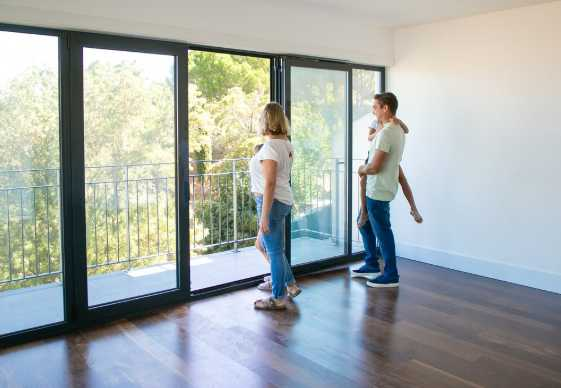Embarking on a home improvement project can be an exciting endeavor, adding value and personalization to your condominium. However, for those living in a community governed by a Homeowners Association (HOA), there are unique considerations to keep in mind.
Whether updating an old bathroom, replacing old flooring, or upgrading exterior windows as part of an HOA, there are important guidelines to know. Here's a comprehensive guide to help you navigate the complexities and ensure a smooth home improvement journey within the framework of your HOA.
Understand HOA Guidelines
Before diving into any home improvement project, familiarize yourself with your HOA's guidelines and rules. HOAs often have specific regulations governing alterations to the exterior and common areas. Reviewing these guidelines is crucial to avoid potential conflicts and ensure your project aligns with community standards.
Obtain HOA Approval
Once you have a clear understanding of the guidelines, seek approval from the HOA for your proposed project. Submit a detailed plan, including design specifications, materials, and a timeline. Obtaining prior approval is essential to prevent any issues that may arise during or after the construction phase.
Prioritizing air quality is paramount when selecting materials for your condominium's home improvement project. Opting for low-VOC paints, formaldehyde-free flooring, and eco-friendly building materials not only aligns with HOA guidelines but also fosters a healthier living environment for residents. These choices not only mitigate potential health risks associated with volatile organic compounds but also demonstrate a commitment to sustainability and community well-being. By investing in products that promote clean indoor air, condo owners can enhance not only the aesthetic appeal but also the overall quality of life within the community.
Research Local Building Codes
In addition to HOA regulations, be aware of local building codes and permit requirements. Compliance with these codes is essential to ensure your home improvement project is not only aesthetically pleasing but also safe and legally sound.
Choose a Qualified Contractor
Selecting a reputable and experienced contractor is crucial, especially in a condominium setting. Ensure your chosen contractor is licensed, insured, and familiar with working within the constraints of an HOA community. Check for references and reviews to gauge their reliability.
Consider Aesthetic Harmony
Maintain the overall aesthetic harmony of the condominium complex. Choose designs, colors, and materials that complement the existing architecture and landscaping. This not only adheres to the HOA guidelines but also contributes to a visually cohesive community.
Noise and Timing Considerations
Coordinate with the HOA and your neighbors regarding project timelines and acceptable working hours. Being considerate of your neighbors' peace and quiet can prevent unnecessary conflicts and foster a cooperative living environment.
Budgeting and Financing
Clearly define your budget for the home improvement project and ensure it aligns with both your personal financial capacity and any HOA requirements. Additionally, inquire about any potential changes to your monthly HOA fees that may result from your project.
Insurance Coverage
Confirm that your contractor carries appropriate insurance coverage. This protects both you and the HOA in case of any unforeseen accidents or damage during the construction process.
Community Communication
Keep open lines of communication with your neighbors and the HOA throughout the project. Regular updates and transparent communication can alleviate concerns, build trust, and demonstrate your commitment to maintaining a positive community atmosphere.
Post-Project Inspection
Once the home improvement project is complete, request a post-project inspection from the HOA to ensure that everything is in compliance with the approved plans and community guidelines.
Undertaking a home improvement project in a condominium within an HOA requires careful planning, communication, and adherence to community guidelines. By navigating these considerations thoughtfully, you can enhance your living space while contributing positively to the overall harmony of your community.
Always consult directly with your HOA and local authorities for the most accurate and up-to-date information relevant to your specific situation.

















